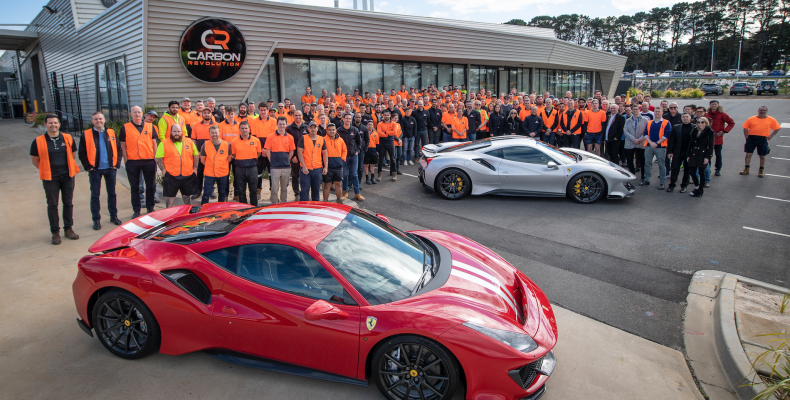Jake Dingle, CEO of Carbon Revolution, recently spoke with Forbes magazine about the benefits that carbon fibre wheels bring to EVs.
“In a world where range is really the battle ground and the desire for people to go as far as possible, being able to deliver in the order of a 5% range extension, five-plus, potentially, if you tie together all the benefits that’s exactly what this technology can deliver,” Dingle told Forbes.
Dingle also discussed how Carbon Revolution’s wheels are lighter than aluminium yet far stronger and reduce road noise by up to 5 decibels. Longer term, Carbon Revolution estimates that for these reasons, carbon fibre wheels will capture 15% of the aluminium wheel market by 2035.
Electronic vehicles (EVs) are on a trajectory to replace the combustion engine over the coming decades. But concerns still stand about their reliability over long distances.
No one wants to be stranded on a road trip, without access to electricity. This concern is proving to be a significant deterrent to consumers making the switch to electric vehicles.
To increase to distance an electric vehicle can cover, batteries have become a large focus of many research and development teams. However, Carbon Revolution CEO Jake Dingle suggests his company’s one-piece carbon fibre wheels will add significant range for electric vehicles.
Dingle sat down with Ed Garsten of Forbes about the benefits that carbon fibre wheels bring to EVs.
Carbon fibre wheels are 40%-50% lighter than aluminium wheels, which is a crucial factor in trying to extend the mileage capacity of a battery.
A lighter vehicle not only means using less energy to move, but “speeding up and slowing down more efficiently and just carrying less weight through the vehicle, obviously rotating unsprung mass that sits below the suspension and rotates- it’s a real premium from its weight saving versus the static mass on the vehicle,” explained Dingle.
Another advantage of carbon fibre wheels is noise reduction – especially in electric vehicles.
“Carbon fibre composites are very stiff and very damped, so they significantly reduce road noise — a measured five decibel reduction so half an order of magnitude of noise reduction,” explained Dingle.
“With EVs you’ve got no engine under the hood so you’ve got road noise dominating what the passenger hears and if you can take that much noise out just with the lower transmissibility of noise, you can have a quieter cabin or take some of the sound deadening that weighs a lot and costs a lot out of the body that you otherwise had to have.”
Jake Dingle, CEO at Carbon Revolution
Where carbon fibre does not have an advantage, however, is price. An aftermarket set of Carbon Revolution wheels easily costs over $10,000 making it the caviar of car wheels. But this is where Dingle says Carbon Revolution is in the process of “disrupting” the market—by lowering design and manufacturing costs and raising production volumes through a greater use of automation.
Dingle estimates in a two-year cycle the cost of producing its one-piece carbon fibre wheels has been cut in half and could be further reduced with the installation of a “mega line.” This fully automated production line could produce 150,000 wheels a year with the capacity to be scaled and duplicated to bring costs down significantly.
With increased volumes and decreased cost, together with the advantages carbon fibre wheels, Carbon Revolution estimates carbon fibre wheels will hold up to 15% of the market from aluminium wheels by 2035.
To date, Carbon Revolution’s wheels were primarily featured on premium sports cars such as the Ford Mustang GT350R and Ferrari 488 Pista.
However, Dingle says several of its wheels for SUVs will be coming to market in the coming months. A production SUV equipped with its wheels will be unveiled next year – a great step towards seeing carbon fibre wheels becoming more commonplace on the market.

Read the original article by Forbes, published September 1, 2021.
Sep 2021
